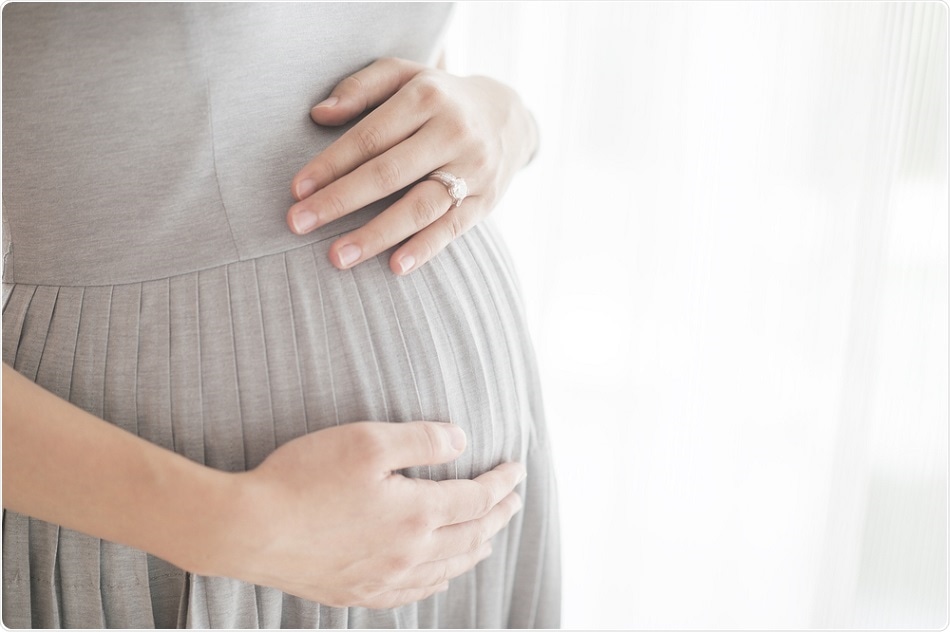The importance of this study is in predicting the increased risk of a potentially severe condition at an early period of life when effective intervention is possible to avert the risk. Over 280,000 women are hospitalized with this condition in the US every year.
The number of affected women varies from country to country, with some Swedish reports showing a rate of 0.3% in contrast to a rate of over 10% in some parts of China.
 Jaengpeng | Shutterstock
Jaengpeng | ShutterstockWhat is hyperemesis gravidarum?
Less than 5 in 100 pregnant women report hyperemesis gravidarum (HG), where the woman is so severely nauseated that neither food nor drink is kept down. This can cause her to become extremely dehydrated and lose excessive weight (over 5% of her body weight) during pregnancy if not treated. The condition can also cause low birth weight, preterm birth, and now, according to the recent study, poor development of the fetal brain.
The study
The current study looked at almost 500,000 women with their babies, the records being drawn from a Kaiser Permanente insurance-linked electronic database covering the years from 1991 to 2014. The researchers compared the children in two groups: those born to mothers with HG, and those whose mothers did not have HG.
Besides the 53% higher risk for ASD in the first group, the study also showed that this risk was observed only with HG occurring in the first six months of pregnancy, but not when HG was present only in the third trimester. Another interesting finding was that, irrespective of grades of HG, the diagnosis of the condition increased the risk of ASD.
More girls than boys developed ASD when born to mothers with HG. Also, babies born to white or Hispanic mothers had a higher risk of ASD when their mothers had HG, compared to the same condition among black or Pacific Island people. Finally, the risk was not apparently due to the medications used to treat HG.
Supporting research
A similar study showed that of almost 270 children born to approximately 180 mothers with HG, 8% were diagnosed with ASD at age 12. In comparison, 93 children of 60 mothers without a history of HG reported no ASD diagnoses. Overall, more than 50% of children of women with HG had been diagnosed with either a behavioral or emotional issue, while in the control group, only half this number, i.e., 26%, had a similar diagnosis.
The chances of having delayed brain development were more than three times higher in the children of mothers with HG. Intellectually, both groups of children were normal. However, problems such as an increased risk of hyperactivity and attention deficit, ASD, anxiety disorders and sensory processing disorder were more frequent in children born to mothers with HG.
There was no difference in the rates of hospitalization for HG, the use of total parenteral nutrition, date of start of symptoms in relation to the pregnancy, or the use of the three most common drugs used to treat morning sickness – promethazine, ondansetron and metoclopramide, when pregnancies with HG resulting in children with ASD were compared with HG pregnancies not associated with a diagnosis of ASD in children.
The link between ASD and HG
The researchers postulate that the severe and prolonged lack of adequate and balanced nutrition during early and late stages of pregnancy interferes with the normal neurodevelopment of the child causing long-term impairment of neurologic functioning.
Genes like GDF15 and IGFBP7 are linked both to HG as well as altered immune system functioning in early pregnancy, which could indicate that abnormal expression of these genes contributes to altered brain development in the fetus. Another possible reason could be the stress caused by HG during pregnancy.
Maternal stress is a risk factor for long-term or irreversible dysregulation of neuroendocrine signaling in the child, which in turn contributes to mood and hyperactivity disorders.
Thirdly, disturbed bonding between the mother and the child cannot be ruled out given the many types of physical and psychological trauma caused by HG, including the financial cost, delayed recovery after childbirth, along with gallbladder and digestive problems.
Poor bonding may cause epigenetic changes in the brain of the fetus which linger in the form of altered neuroendocrine regulation and responses to stress throughout the child’s life. Other conditions that may be linked to exposure to HG in fetal life include increased cortisol secretion in the absence of stress, insulin insensitivity, and a higher risk of testicular cancer in adult life.
On the other hand, more studies are required to make sure that factors surrounding the exposure of the fetus to HG medications, or smoking, are not the cause of the ASD.
Journal reference:
Analysis of neurodevelopmental delay in children exposed in utero to hyperemesis gravidarum reveals increased reporting of autism spectrum disorder. Marlena Fejzo, Alyssa Kam, Amanda Laguna, Kimber McGibbon, and Patrick Mullin. Reproductive Toxicology 84 (2019) 59-64. https://doi.org/10.1016/j.reprotox.2018.12.009